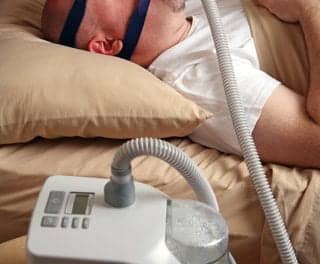At the 72nd Annual Scientific Meeting of the American College of
Gastroenterology in Philadelphia, scientists proclaimed that
gastroesophageal reflux disease (GERD) interferes with sleep.
Researchers led by Bonnie Dean, MPH, PhD, Cerner LifeSciences, and Ronnie
Fass, MD, University of Arizona, found that 49.5% of patients with nighttime
GERD reported poor sleep while only 36.7% of people with daytime GERD
reported sleep disturbances.
The team also discovered that poor sleep was more frequent among GERD
patients with atypical manifestations (i.e. wheezing, sore throat, choking,
chest pain) compared to patients with typical symptoms such as
heartburn and acid regurgitation.
To prevent nighttime disturbances, the College offered the following advice
to GERD patients:
• Sleep with your head and shoulders elevated.
• Wear loose-fitting clothes.
• Wait 2 to 3 hours after eating to go to sleep.
• Avoid foods that trigger heartburn.



